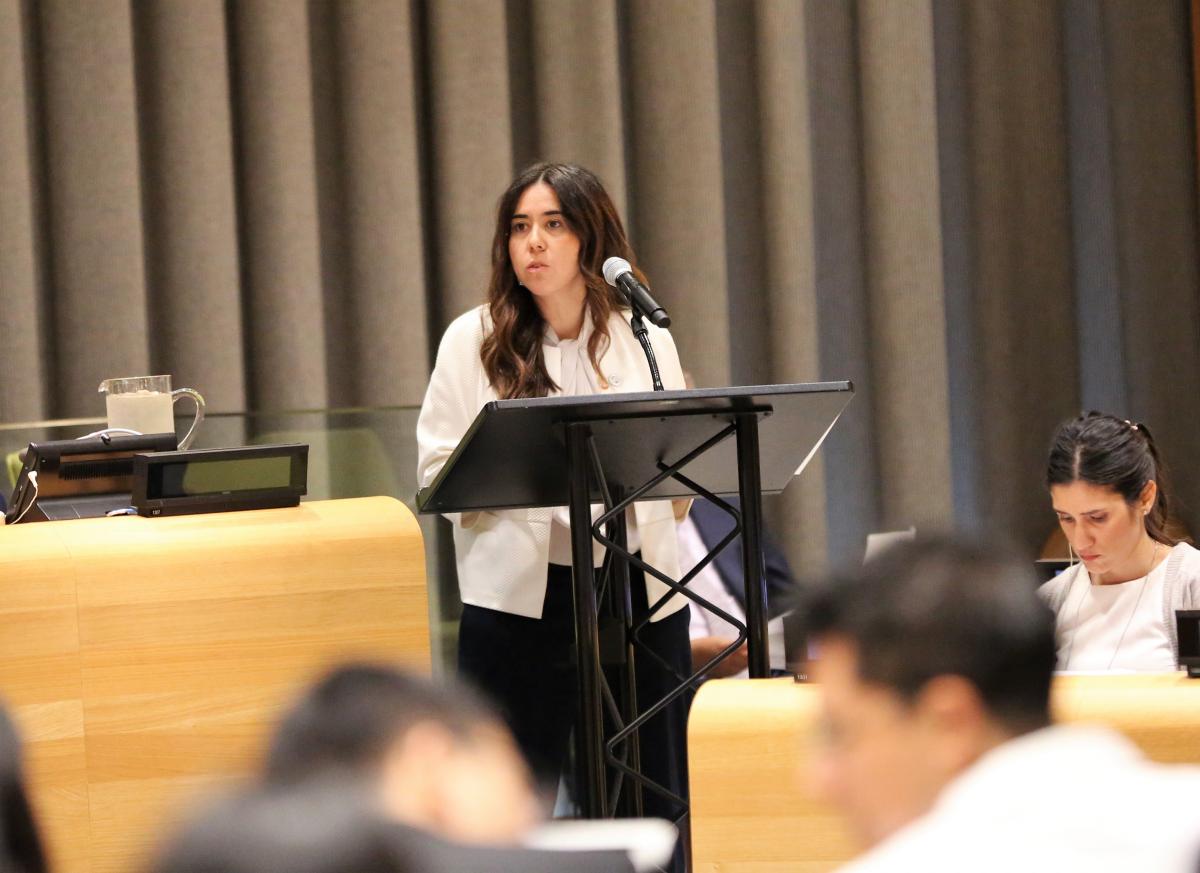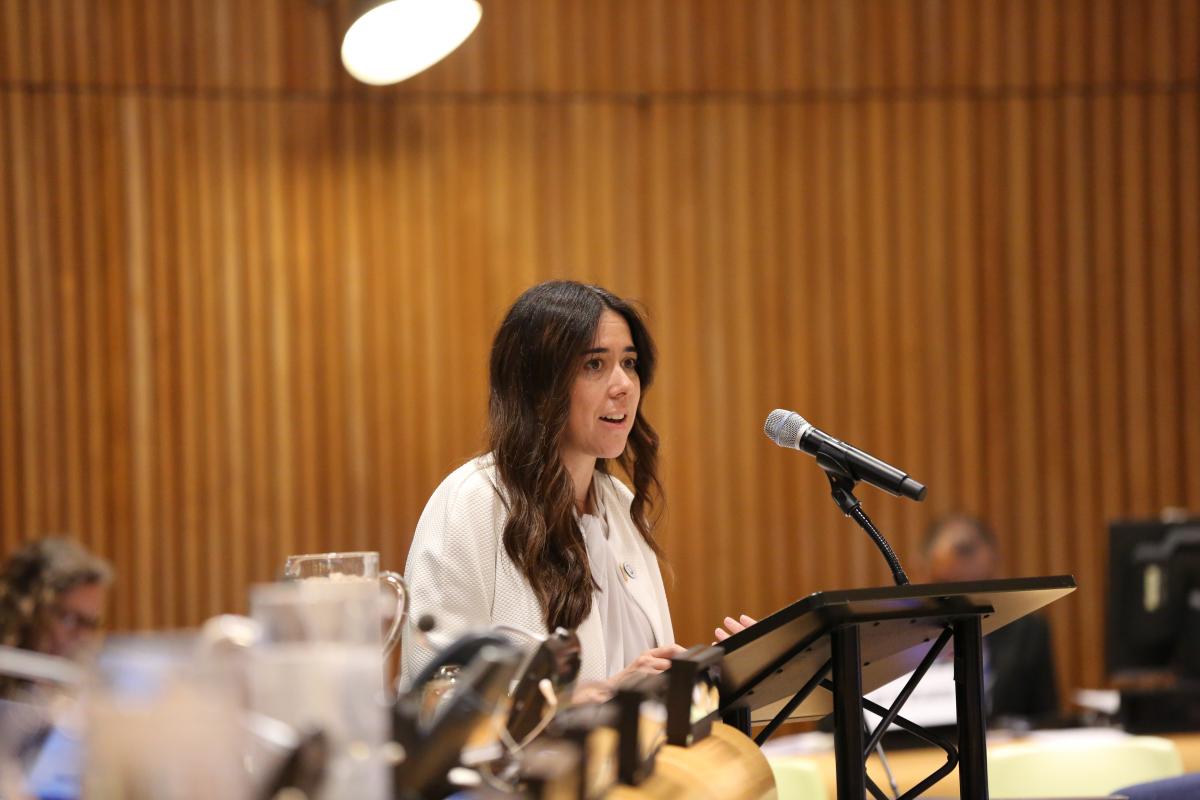NEW YORK – At a critical United Nations General Assembly meeting, the UAE reaffirmed its shared commitment to “Responsibility to Protect.”

“With the passing of time, historical memory of atrocities and crimes against humanity fades – and the significance of “never again” wanes. However, we must not forget the events, actions, and inaction, that led to such atrocities, and we must dedicate ourselves to preserving our shared memory of them,” underscored H.E. Lana Nusseibeh, Ambassador and Permanent Representative of the UAE to the UN, in her statement to the body.
Ambassador Nusseibeh emphasized that while political events and the context of crises are different than they were in Srebenica and Rwanda over 20 years ago, there are States who fail to protect their own populations from atrocity crimes. She questioned if the nature of modern crises challenged the viability of the principle of Responsibility to Protect as a norm. She said: “There is also the question of the status of Responsibility to Protect when the international bodies tasked with defending peace and security struggle to reach consensus and take action.” To this point, she noted that in various cases the UN Security Council paralysis has contributed to the prolonging of violent conflict around the world.
Ambassador Nusseibeh stressed that the Responsibility to Protect a population from crimes against humanity laid with the sovereign State, noting: “However, in this context, we believe that the concept of sovereignty is a right, with a concomitant responsibility.” She stated that the sovereign State’s responsibility to protect extended to addressing the root causes of conflict. She underlined, however, that intervention by the international community is the last resort and is only warranted when a State has violated its obligations under international law and failed to fulfil its Responsibility to Protect. “Any military action that may come with upholding the Responsibility to Protect would only be undertaken with the consent of the sovereign State, or when authorized by the Security Council, and therefore strengthening Security Council’s toolkit of responses to crises,” she added.

Regarding early action and prevention, Ambassador Nusseibeh reiterated the UN Secretary-General’s three-fold strategy, highlighting that ensuring accountability for mass atrocity crimes is vital for preventing their reoccurrence. Taking note of the experiences of multiple armed conflicts implicating civilian communities in the Middle East, she stated the importance of data collection mechanisms and reinforcing legal frameworks by international bodies to objectively verify atrocities in order for the international community to react promptly and responsibly to major developments.
Additionally, she highlighted the critical role of civilians in early warning and assessment, and in bringing situations of concern to the attention of the international community. She underscored: “While the State’s responsibility of protection is owed to its people, civilians should not be treated merely as silent beneficiaries – they are partners. And civilian action contributes to the prevention of atrocity crimes.”
On addressing root causes of conflict before intervention, Ambassador Nusseibeh called for strengthening the role of women in prevention efforts – noting that gender equality and the full inclusion of women in peace processes and as preventive actors greatly reduces a society’s exposure to the risks of violence. She also emphasized that prevention efforts must include an established and institutionalized role for youth. Furthermore, she called for regional and national solutions focused on early action in preventing atrocities, and for commitment to a robust human rights regime as key to the prevention agenda.
